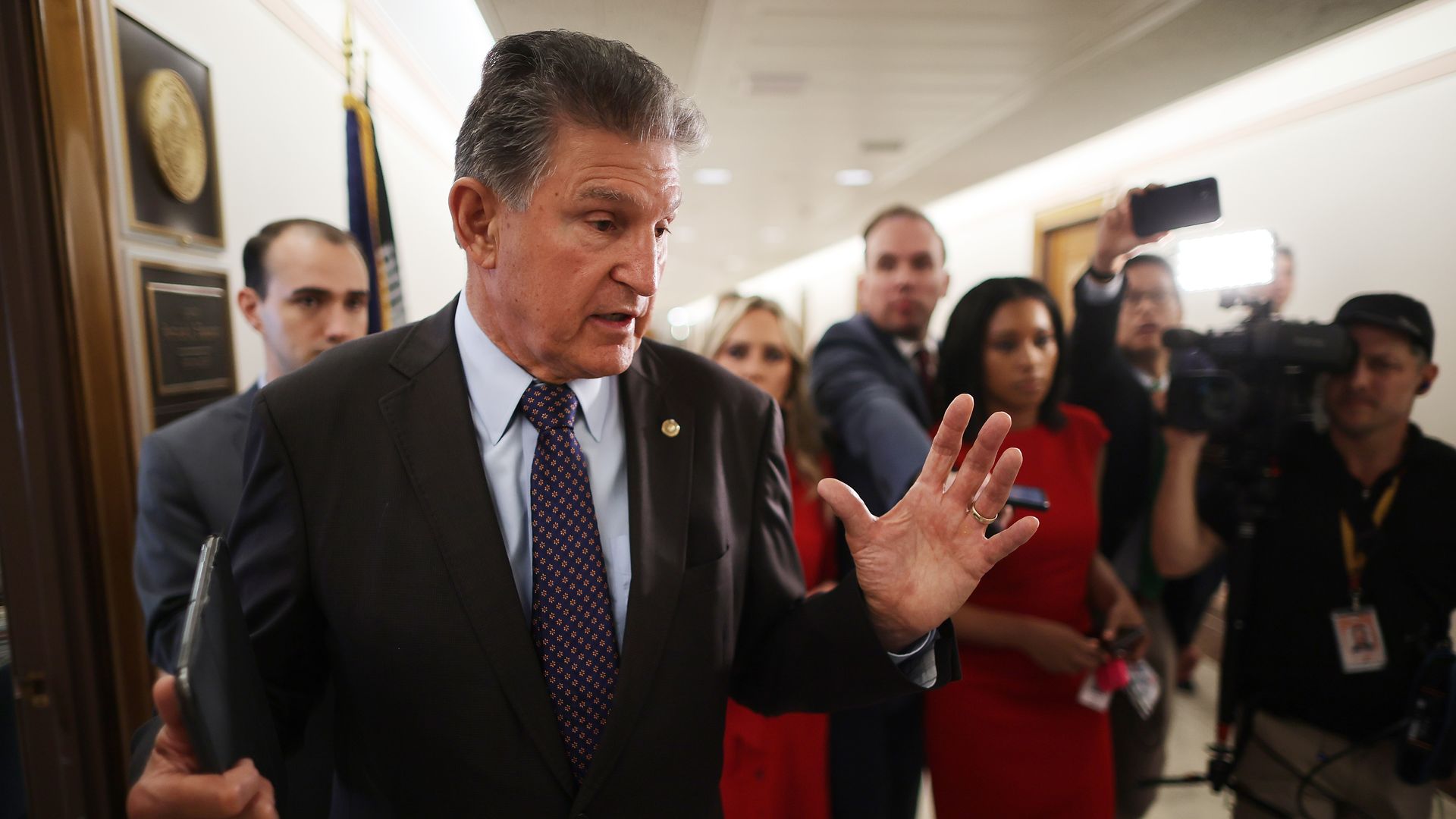
Senator Joe Manchin (D-WV),
Today the focus is on the Senate and whether it will pass the bill the House passed last week to establish an independent commission to investigate the January 6 insurrection. Thirty-five Republicans joined the Democrats in voting to create the commission.
Today, four former leaders of the Department of Homeland Security issued a statement urging the Senate to pass the bill. Janet Napolitano and Jeh Johnson, who served in the Barack Obama administration, joined Michael Chertoff and Tom Ridge, who served under George W. Bush, to tell the Senate, “We must understand how the violent insurrection at the Capitol came together to ensure the peaceful transfer of power in our country is never so threatened again.” They called for senators to “put politics aside and create a bipartisan, independent 9/11-style commission to investigate the January 6 attack on the Capitol."
Senate Minority Leader Mitch McConnell (R-KY) opposes the commission, as does former president Trump, who called it a “Democrat trap.” It will take ten Republicans voting with the Democrats to overcome a Republican filibuster of the bill, and such a bipartisan effort is unlikely. So far only Lisa Murkowski (R-AK) and Mitt Romney (R-UT), both of whom have their own power bases outside of the national Republican Party, have indicated they will vote for the commission.
Democrats can put together their own committee to figure out what happened on January 6, but Republicans will undoubtedly accuse them of partisanship and dismiss whatever they uncover. Democrats would prefer to have an independent, bipartisan investigation.
Today, the mother and partner of Capitol Police officer Brian Sicknick, who died after the January 6 insurrection, were in Washington, D.C., pleading with Republican senators to support the creation of an independent commission to investigate the January 6 insurrection. Joining them were D.C. Police officer Michael Fanone and U.S. Capitol Police officer Harry Dunn, both of whom protected congress people during the riot, in which 140 police officers were injured.
Murkowski told Gladys Sicknick, “I’m heartsick that you feel you need to advocate to members of Congress that we stand up and say the truth is hard but the truth is necessary.”
After their visit, McConnell pressured Republican senators to filibuster the bill as “a personal favor” to him. Murkowski commented: "To be making a decision for the short-term political gain at expense of understanding and acknowledging what was in front of us on Jan. 6, I think we need to look at that critically. Is that really what this is about, one election cycle after another?"
Republicans are saying that they don’t want the commission because they’re afraid it will hurt them in the 2022 midterm elections. The tactic of using investigations to taint elections, of course, has been the Republicans’ go-to specialty since the mid-1990s, when Republicans “investigated” suspected cases of election wins through so-called “voter fraud” to convince Americans that voter fraud—which is statistically insignificant in the U.S.—is a problem.
That use of investigations continued until it became a key factor in the 2016 election, when investigations into the 2012 attack on U.S. government facilities in Benghazi, Libya, that killed four Americans, along with accusations that Secretary of State Hillary Clinton had misused an email server, helped to sway the election’s outcome. Tellingly, using an investigation to taint an election was the goal behind the scandal that led to former president Trump’s first impeachment, after he tried to pressure Ukraine President Volodymyr Zelensky to announce an investigation into Joe Biden’s son Hunter—not to launch an investigation, but only to announce one—to weaken Biden before the 2020 election.
In this case, though, the House bill, which adopted all the key Republican demands, requires that the commission issue its final report by the end of 2021.
McConnell doesn’t want the publicity associated with the insurrectionists, but also likely doesn’t want to run the risk of losing any Republican senators who might turn out to be associated with the rioters. The Senate is precariously balanced at 50-50, and the organizing resolution the senators adopted on February 3, 2021, is based on that even split. McConnell filibustered that resolution until he got a Democratic commitment to preserve the filibuster.
So, an independent investigation of the insurrection has the potential to affect not only individual senators, but also the balance of the Senate and the power the Republicans continue to hold in it, sharing power with the Democrats despite the fact they represent 40.5 million fewer people than the 50 Democrats do.
Thus the fight to establish an independent, bipartisan commission to investigate the events of January 6 has become a key test for the Senate filibuster and the power it enables Republicans to exert over our government. Senator Joe Manchin (D-WV), who is one of the two holdouts on the Democratic side to preserve the filibuster, says “there is no excuse for any Republican to vote against” the bill but maintains that “ten good people” in the Republican Party will come around to vote in favor.